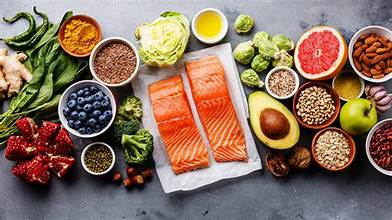In 2024, achieving optimal health and wellness requires more than just a casual approach to diet and nutrition. With advancements in nutrition science and a growing awareness of the importance of a balanced diet, it’s crucial to stay informed about the best nutrition and diet plans. Here are the top 10 nutrition and diet plans for transforming your health this year.
1. Mediterranean Diet
Overview: The Mediterranean diet emphasizes whole grains, fresh fruits, vegetables, nuts, seeds, and olive oil, with moderate consumption of fish and poultry, and limited dairy and red meat.
Benefits: This diet is renowned for its heart-healthy benefits, including reduced risk of cardiovascular disease and improved longevity. It also supports weight management and better digestive health.
Key Features:
- High in monounsaturated fats
- Rich in antioxidants and fiber
- Encourages moderate alcohol consumption (red wine)
Tips: Incorporate a variety of colorful fruits and vegetables into your meals and use olive oil as your primary fat source.
2. Ketogenic Diet
Overview: The ketogenic diet is a high-fat, moderate-protein, and low-carbohydrate diet designed to put your body into a state of ketosis, where it burns fat for fuel.
Benefits: This diet is effective for rapid weight loss and improved mental clarity. It can also help manage blood sugar levels and improve energy levels.
Key Features:
- Very low carb intake
- High in fats from sources like avocados, nuts, and olive oil
- Moderate protein consumption
Tips: Be mindful of hidden carbs in processed foods and prioritize whole, unprocessed foods.
3. Plant-Based Diet
Overview: A plant-based diet focuses on foods derived from plants, including fruits, vegetables, nuts, seeds, and legumes, while minimizing or eliminating animal products.
Benefits: This diet supports heart health, lowers the risk of chronic diseases, and is often associated with improved weight management and digestion.
Key Features:
- Emphasis on fruits and vegetables
- High in fiber and antioxidants
- Minimal to no animal products
Tips: Ensure adequate protein intake from plant-based sources like beans, lentils, and quinoa.
4. Intermittent Fasting
Overview: Intermittent fasting involves alternating periods of eating and fasting. Popular methods include the 16/8 method (16 hours fasting, 8 hours eating) and the 5:2 method (eating normally for 5 days and restricting calories for 2 days).
Benefits: This approach can aid in weight loss, improve metabolic health, and enhance mental clarity.
Key Features:
- Flexible eating windows
- Focus on the timing of meals rather than specific foods
- Can be combined with other diets like ketogenic or plant-based
Tips: Stay hydrated and listen to your body’s hunger cues to avoid overeating during eating windows.
5. Paleo Diet
Overview: The Paleo diet is based on eating foods that were available to our pre-agricultural ancestors, such as lean meats, fish, fruits, vegetables, nuts, and seeds.
Benefits: This diet may improve digestion, reduce inflammation, and support weight management.
Key Features:
- Excludes processed foods, grains, and dairy
- Emphasizes whole, unprocessed foods
- High in protein and healthy fats
Tips: Focus on quality sources of meat and consider incorporating a variety of fruits and vegetables.
6. Whole30 Diet
Overview: Whole30 is a 30-day program that eliminates sugar, alcohol, grains, legumes, soy, and dairy. It encourages the consumption of whole, unprocessed foods.
Benefits: Whole30 can help identify food sensitivities, improve energy levels, and support overall wellness.
Key Features:
- Strict elimination of specific food groups for 30 days
- Focus on whole foods and clean eating
- Emphasizes the reintroduction of eliminated foods post-program
Tips: Prepare meals in advance to stay on track and avoid temptation.
7. Flexitarian Diet
Overview: The Flexitarian diet is a flexible approach to vegetarianism that emphasizes plant-based foods but allows for occasional meat and fish consumption.
Benefits: It provides the health benefits of a plant-based diet while offering flexibility, making it easier to maintain long-term.
Key Features:
- Primarily plant-based with occasional meat or fish
- Encourages whole, unprocessed foods
- Focuses on nutrient-dense options
Tips: Aim to include a variety of plant-based proteins and vegetables in your meals.
8. DASH Diet
Overview: The Dietary Approaches to Stop Hypertension (DASH) diet focuses on reducing sodium intake and increasing consumption of fruits, vegetables, whole grains, and lean proteins.
Benefits: This diet is effective for lowering blood pressure, reducing the risk of heart disease, and improving overall cardiovascular health.
Key Features:
- Low in sodium
- Emphasizes potassium, calcium, and magnesium-rich foods
- Balanced macronutrient distribution
Tips: Use herbs and spices to flavor food instead of salt, and focus on low-sodium options.
9. Low-FODMAP Diet
Overview: The Low-FODMAP diet involves reducing the intake of certain types of carbohydrates that are poorly absorbed in the small intestine. It is often used to manage symptoms of irritable bowel syndrome (IBS).
Benefits: It can alleviate digestive discomfort, improve gut health, and reduce bloating and gas.
Key Features:
- Limits high-FODMAP foods like certain fruits, vegetables, and dairy
- Focus on low-FODMAP alternatives
- Structured in phases: elimination, reintroduction, and personalization
Tips: Work with a dietitian to ensure nutritional balance and to correctly follow the elimination and reintroduction phases.
10. Anti-Inflammatory Diet
Overview: The Anti-Inflammatory diet focuses on foods that reduce inflammation and includes a variety of fruits, vegetables, whole grains, lean proteins, and healthy fats.
Benefits: It may help manage chronic inflammation, reduce the risk of inflammatory diseases, and support overall health.
Key Features:
- Rich in antioxidants and omega-3 fatty acids
- Emphasizes whole, minimally processed foods
- Avoids refined sugars and processed fats
Tips: Incorporate foods rich in omega-3s, like fatty fish and flaxseeds, and focus on anti-inflammatory herbs and spices such as turmeric and ginger.
Conclusion
Adopting a new nutrition and diet plan can be a transformative experience for your health in 2024. Whether you’re interested in the heart-healthy Mediterranean diet or the flexible Flexitarian approach, each plan offers unique benefits tailored to different health goals. Remember to consult with a healthcare professional before starting any new diet, especially if you have pre-existing health conditions. Embrace these top 10 nutrition and diet plans to enhance your overall well-being and achieve your health goals this year.










